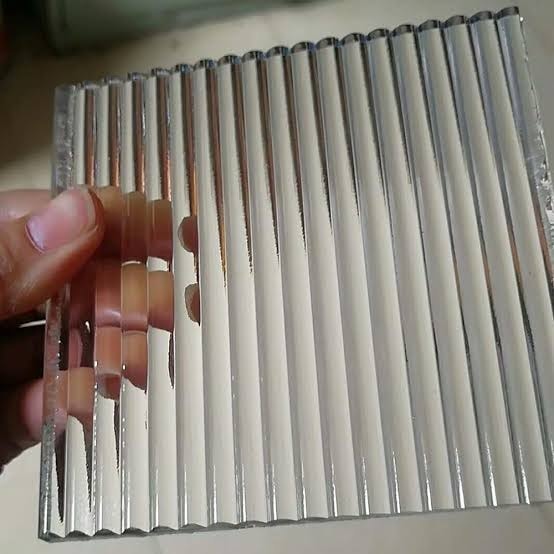Fluted Glass


What is Fluted Glass?
Fluted glass, also known as reeded glass or ribbed glass, is a sort of patterned glass that is created by pressing semi-molten glass between metal rollers to create a distinctive pattern. It is very popular among architects and interior designers who want to add texture to a living space while dispersing light and providing privacy.
How Thick is Fluted Glass?
Typically, fluted glass is widely available in thicknesses from 4 to 12 millimeters but can be manufactured all the way up to 20mm thick.
Is Fluted Glass Expensive?
Fluted glass costs 40-50% more than clear float glass of the same thickness. It is more expensive because it takes longer to produce and requires more material.
Can Fluted Glass be Toughened?
Fluted glass can be toughened to meet AS1288 standards for grade A safety glass. As an alternative to toughening, you can also make use of a shatter-proof film which is adhered to either side of the glass to add an extra layer of safety.
How to Use Fluted Glass
- Fluted glass can be used in window or door panels to obscure views into bathrooms or where you want to maintain your sense of privacy without limiting natural light access
- Fluted glass is also useful for creating partitions and can be used in the place of frosted glass or etched glass to provide privacy without making the space feel smaller
- Although fluted glass is traditionally used in the form of window panes, it has recently been used in modern times for display cabinets and other pieces of functional home décor
Is Fluted Glass Hard to Clean?
Fluted glass takes longer to clean when compared with ordinary float glass or frosted glass. This is due to it’s grooves which tends to accumulate more dust and dirt and also increases the surface area of the glass.
Can Flute Glass be Cut?
Yes. Fluted glass which has not gone through a tempering (toughening) process can be cut, provided that care is taken when using power tools for this purpose. Flutes may cause an increased risk of breakage during cutting if they are not closely observed. Fluting on edges must also be carefully considered before cutting to avoid chipping or cracking.


Michael Peterson
Michael Charles Peterson has been a glazier for over 20 years and is an expert in all things glass. He specialises in residential and commercial installations and repairs, including shower screens, mirrors and windows.
He's friendly and professional, with the experience to help you every step of the way and works in our Wentworth Point location providing glass repairs for our clients in the surrounding areas of Parramatta and Ryde.
